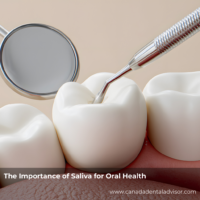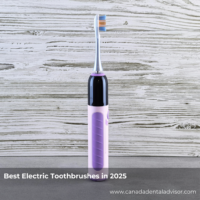The Connection Between Stress and Oral Health
Stress affects the body in surprising ways, and the mouth is no exception. Common stress-related oral health issues include:
Bruxism (teeth grinding): Often occurring at night, bruxism can wear down enamel, cause jaw pain, and even fracture teeth.
Dry mouth: Stress can reduce saliva production, creating an environment where cavities and infections thrive.
Gum disease: Elevated stress hormones weaken the immune system, making gums more susceptible to inflammation and infection.
Canker sores: Emotional strain can trigger small, painful ulcers inside the mouth.
For patients, these issues can feel overwhelming—especially when they don’t see the immediate connection between their lifestyle and their oral health.
Why Individualized Care Plans Matter
Every patient’s stress triggers and coping mechanisms are different. That’s why a one-size-fits-all approach often fails. Individualized care plans take into account:
Personal habits: Do they clench their jaw while working? Skip brushing when overwhelmed?
Health history: Is there a family background of gum disease or other chronic conditions?
Lifestyle factors: Sleep patterns, diet, and even work stress levels all play a role.
By tailoring care to these factors, dentists can address the root causes of oral health problems rather than just treating symptoms.
Improving Treatment Outcomes Through Personalization
Consider two patients with bruxism. One is a college student pulling all-nighters; the other is a professional balancing work and family stress. Both grind their teeth, but their care plans might differ:
The student may benefit from stress-management counseling, a custom night guard, and reminders to stay hydrated.
The professional may need a more robust guard, dietary advice, and jaw relaxation exercises.
In each case, the dentist isn’t just addressing the grinding—they’re tackling the lifestyle factors that contribute to it. This results in fewer dental emergencies, less discomfort, and more sustainable oral health improvements.
Enhancing Patient Compliance
Let’s face it: following dental advice can feel like one more task on a stressed-out patient’s to-do list. That’s where individualized plans shine.
Relevance breeds motivation: When patients see how advice directly ties to their unique struggles, they’re more likely to follow through.
Small, manageable steps: Instead of overwhelming instructions, patients receive bite-sized goals—like using a mouthguard or practicing 5 minutes of relaxation before bed.
Ongoing support: Personalized care often includes check-ins and adjustments, which help patients stay on track.
When patients feel heard and understood, compliance stops being a chore and becomes part of a wellness journey.
Fostering Long-Term Oral Health
Individualized care plans do more than treat immediate problems; they set the stage for lifelong oral health. By teaching patients to recognize early warning signs—jaw pain, bleeding gums, or dry mouth—they become active participants in their own care.
Over time, patients learn not only how to manage stress-related oral health issues but also how to prevent them. This proactive approach builds resilience, ensuring fewer complications and healthier smiles down the road.
Conclusion
Stress may be an unavoidable part of modern life, but its toll on oral health doesn’t have to be permanent. By embracing individualized care plans, dentists can improve treatment outcomes, boost patient compliance, and empower people to protect their smiles for the long haul. The key is personalization: meeting each patient where they are and guiding them toward better oral—and overall—wellness.
FAQs
1. How does stress directly affect oral health?
Stress can cause teeth grinding, dry mouth, gum disease, and mouth sores, all of which negatively impact oral health.
2. Can individualized care really make a difference?
Yes! Tailored plans address unique stressors, habits, and health needs, leading to more effective treatments and better compliance.
3. What are simple steps to manage stress-related oral health issues?
Using a mouthguard, practicing relaxation techniques, staying hydrated, and attending regular dental checkups all help.
4. Is bruxism only caused by stress?
No. While stress is a common trigger, bruxism can also be linked to sleep disorders, medications, or dental misalignment.
5. How can dentists help patients reduce stress’s impact on their oral health?
Dentists can offer practical tools like custom guards, recommend lifestyle changes, and provide personalized guidance tailored to each patient’s needs.
6. Why is patient compliance often low with generic care plans?
Generic plans feel impersonal and overwhelming, while individualized ones feel achievable and directly relevant.
7. Can stress affect children’s oral health too?
Yes. Kids can also grind their teeth or develop canker sores when stressed, making individualized pediatric dental care important.
8. How often should stressed patients see their dentist?
Regular checkups every 6 months are recommended, but those with stress-related issues may benefit from more frequent visits.










Leave a Reply